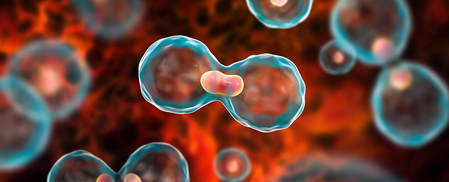High cholesterol is a common health issue affecting millions globally, with around 53% of adults in the UK grappling with high cholesterol levels. According to the NHS, women are slightly more affected at 56%, compared to 49% of men. Healthcare experts monitor cholesterol levels through blood tests, which typically provide readings for both high-density lipoprotein (HDL) and low-density lipoprotein (LDL).
HDL is often dubbed the 'good' cholesterol as it aids in removing harmful cholesterol from the bloodstream. Conversely, LDL cholesterol tends to build up in the arteries. This accumulation narrows and hardens the artery walls, disrupting smooth blood flow and encouraging the formation of dangerous fatty deposits.

These deposits can lead to blood clots, posing serious risks to the heart and brain. Thankfully, there are effective methods individuals can employ to manage high cholesterol levels. While medications are a robust first line of defence, dietary modifications can significantly lower cholesterol, reports Surrey Live .
Certain foods and beverages play a part, but some drinks can also help reduce bad cholesterol in your blood. If you're battling high cholesterol and keen to take control of your health, consider adding green tea to your daily regimen. Green tea, hailed as one of the healthiest beverages around, is known for its metabolism-boosting properties and ability to lower LDL cholesterol levels in both healthy individuals and those at risk of heart problems.
However, it doesn't seem to affect HDL levels. The secret behind green tea's health benefits lies in its flavonoids. These are powerful anti-inflammatories that can help break down LDL plaque in the arteries.
Studies involving humans and animals have demonstrated that green tea, particularly its active compound epigallocatechin gallate (EGCG), is linked with reduced LDL and total cholesterol levels. EGCG, a potent antioxidant found in green tea, could also help ease inflammation, potentially benefiting conditions like ulcerative colitis, inflammatory bowel diseases, heart disease, and certain cancers. Packed with antioxidants, especially catechins, green tea significantly combats inflammation by neutralising free radicals and reducing oxidative stress.
This drink may also help lower inflammatory markers such as C-reactive protein (CRP) and interleukin-6 (IL-6). Plus, the polyphenols present in green tea can improve endothelial function, a key aspect of maintaining heart health. Green tea, a beverage rich in EGCG, could be a secret weapon in managing blood sugar levels, too, by reducing fasting blood glucose and enhancing insulin sensitivity.
The catechins found in green tea have been shown to influence metabolic health positively. Research suggests that green tea consumption can help lower fasting blood glucose levels and HbA1c, which is an indicator of long-term blood sugar management. A comprehensive meta-analysis carried out in 2019, which included 27 studies, found that both short-term and long-term intake of green tea was linked with decreased fasting blood sugar levels.
Another meta-analysis, this time involving 17 randomised controlled trials (RCTs), discovered that the intake of green tea led to a significant decrease in fasting blood glucose (FBG) and glycated haemoglobin (HbA1c). If you're new to green tea, incorporating it into your diet is straightforward. You can either steep tea bags or loose leaves in hot water for several minutes, or mix matcha powder into hot water or milk for a tasty drink.
The effect of green tea on blood sugar levels can vary depending on the frequency and duration of consumption. Studies suggest that to reap its potential benefits, one might need to consume green tea consistently, possibly around four cups daily. Green tea is inherently low in calories and has a lower caffeine content compared to coffee, making it a wholesome and invigorating drink choice.
For the majority of individuals, consuming green tea in moderation—up to 8 cups a day—is generally considered safe. While green tea is often hailed for its potential health benefits, it's important to remember that it should not be used as a substitute for traditional treatments for diabetes or other health conditions. Always consult with a healthcare professional for personalised advice.
It's worth noting that green tea contains caffeine, which could disrupt sleep patterns for some individuals. Overindulging in green tea could also interfere with iron absorption. Furthermore, the compounds present in green tea can interact with certain medications, making it crucial to discuss with a healthcare provider, especially if you're on regular medication.
.
Health

Cholesterol and blood sugar will improve with one hot drink backed by science

High cholesterol is a common health condition that can lead to serious complications if left unmanaged. Fortunately, there are drinks to help manage it.















